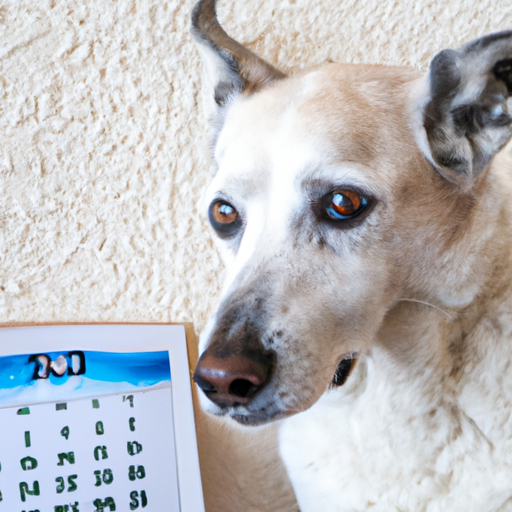Understanding Your Dog’s Vision
You’ve probably marveled at your dog’s keen senses. Their ability to perceive the world around them often seems extraordinary. However, these same senses can deteriorate with age, and one of the most significant senses that can be affected is your dog’s sight.
Just as with humans, dogs can start experiencing vision difficulties as they age. It’s important to understand this process and what you can do to help your dog navigate this phase of their life.
When Do Dogs Begin To Lose Their Eyesight?
Vision loss in dogs is not a sudden process; it’s usually gradual, often linked to aging but can also be due to other health conditions. Typically, dogs start showing signs of vision loss around 8-10 years old. However, it can vary greatly with different breeds and individual dogs.
Here’s a breakdown by breed:
| Breed | Average Age at Onset of Vision Loss |
|---|---|
| Labrador | 8-10 years |
| Poodle | 9-11 years |
| Boxer | 8-10 years |
| Beagle | 10-12 years |
Recognizing the Signs
As a caregiver, you’re in a unique position to spot changes in your dog’s behavior that might indicate vision loss. Here are some signs to look out for:
- Bumping into furniture or walls
- Difficulty finding toys or food bowls
- Hesitation when faced with stairs or unfamiliar terrain
- Changes in the eyes, such as cloudiness or redness
How to Help Your Dog
If you notice these signs, it’s important to take your dog to the vet for a thorough examination. In some cases, vision loss can be slowed or even reversed with the right treatment.
Meanwhile, there are several ways you can help your dog adjust to their changing vision:
- Keep their environment consistent: Don’t move furniture around and keep their food and water bowls in the same place.
- Use scents: Dogs have a highly developed sense of smell. Use this to your advantage by using scented markers to guide them.
- Train them to respond to vocal cues: This can help guide your dog in unfamiliar environments.
Vision Loss Is Not the End
Losing vision doesn’t mean your dog can’t live a happy and fulfilling life. With your help, they can adapt to their new circumstances and continue to enjoy their golden years. Remember, your dog’s love for you isn’t dependent on their ability to see you—it’s all about the bond you share.
Frequently Asked Questions
At what point should I take my dog to the vet for vision loss?
If you notice any signs of vision loss, it’s important to take your dog to the vet immediately. Early detection can potentially slow down or even reverse the process.
Can all dogs suffer from vision loss?
Yes, all dogs, irrespective of their breed, can experience vision loss with age or due to health conditions. However, age of onset and severity can vary.
Can vision loss in dogs be prevented?
While it’s not always possible to prevent vision loss, regular vet check-ups and a healthy lifestyle can help detect any issues early and slow down the process.



